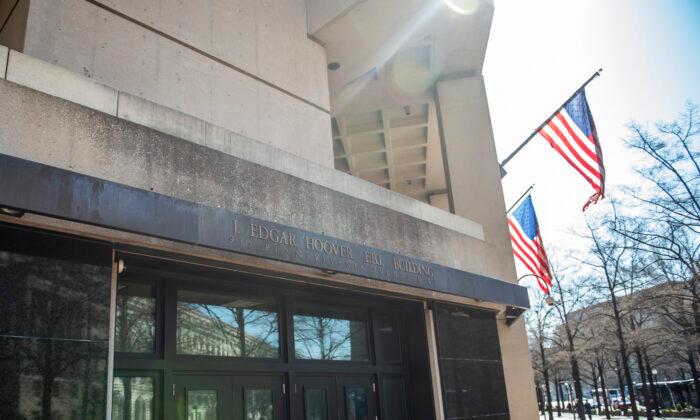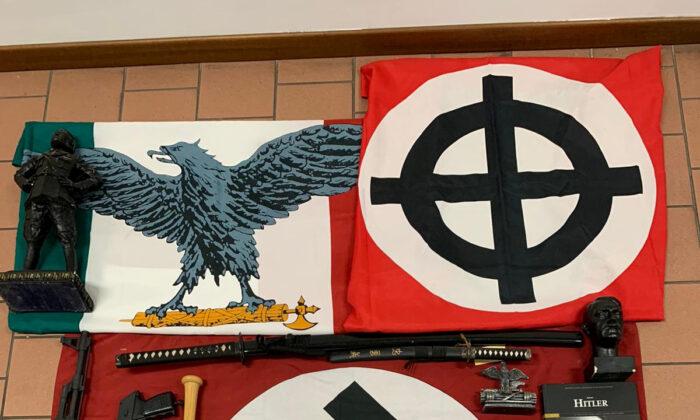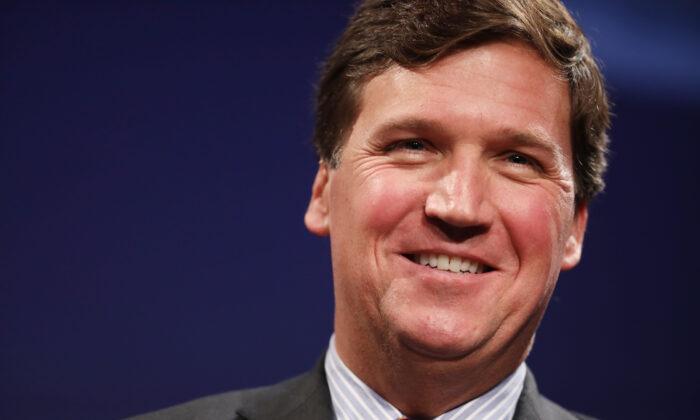The Justice Department’s (DOJ) Office of Inspector General has declined to investigate allegations from FBI whistleblower William McGrath, who says the bureau retaliated against him for refusing an order that he says would have compromised the life of a confidential informant.
McGrath on June 6 provided The Epoch Times with the letter from DOJ Assistant Inspector General Sean O’Neill, who told him no investigation would be conducted into the “renewed allegations” that McGrath has been pursuing for more than 20 years.
“Having carefully considered your April 1, 2022, email and the six attachments to it that, according to your email, support your allegations, we are declining to open an investigation,” O’Neill told McGrath in the letter dated June 6.
McGrath’s roughly 25-year saga began when he was a special agent investigating Russian organized crime in 1997.
According to McGrath—who provided records to corroborate his story—his bosses at the bureau wanted him to use a confidential informant to record a phone call with a prominent New York politician. McGrath, who declined to name the public official, said that person was never charged with a crime and is in a more prominent position today than he was in 1997.
McGrath said his informant’s identity and life could have been jeopardized if he made that recorded phone call sought by his bosses. McGrath also said the top bureau officials were seeking to circumvent the informant’s handler, who was unaware of the planned phone call.
Internal notes from the DOJ’s Inspector General’s (OIG) office reviewed by The Epoch Times support McGrath’s claim. The notes say the informant worked on investigations involving Russian organized crime, and “was of such importance to the FBI that, in the early 1980s, FBI Headquarters ordered that this informant was not to be put in position to testify, which would then reveal his identity.”
While the informant had the freedom to refuse to make the call—McGrath referred to the person as a “good citizen informant” rather than someone working with the federal government to avoid prosecution—he also may not have known the risks involved, McGrath said.
McGrath said the FBI officials in New York were trying to use him to circumvent the informant’s relationship with the direct handler in Washington. That would violate FBI guidelines, and can erode trust between informants and their handlers, he said.
When the New York officials insisted on using the informant against McGrath’s wishes, he resigned from the FBI on Dec. 5, 1997.
Under the impression that he was avoiding a hornet’s nest by resigning, McGrath was shocked and angered when the FBI said he went AWOL on the day of his departure.
He filed an internal whistleblower complaint in 1998, alleging that the FBI’s AWOL designation was retaliation for his resignation.
The FBI disputed his allegations until McGrath’s whistleblower complaint was finally successful in 2007, when the DOJ’s Office of Attorney Recruitment and Management (OARM) found that the FBI incorrectly labeled him AWOL—ordering the bureau to pay him $13,422 in legal costs and four hours of docked pay.
However, the administrative process failed to take any action against the FBI officials. OARM dismissed McGrath’s other allegations, including that FBI officials gave him negative performance reviews and provided false information to other prospective employers.
McGrath has been pursuing his case since then via various lawsuits and appeals to the FBI, DOJ, and Congress for investigations—to little success.
U.S. District Judge Shira Scheindlin struck down his whistleblower lawsuit against the FBI in April 2008, ruling that the law doesn’t afford the same whistleblower protections to FBI agents as it does to other government employees. Meanwhile, internal FBI and DOJ personnel have declined to pursue his case over multiple administrations; the whistleblower said he renews his allegations when leadership changes in those agencies.
However, in February, the Senate Committee on Homeland Security interviewed McGrath, and on April 6, he signed a consent form for the committee to obtain information about his case from the OIG, according to records he provided The Epoch Times.
FBI officials haven’t responded to a request from The Epoch Times for comment.




